I Am Yusuf and This is My Brother - production for MA Acting students at Drama Centre July 2016
I am Yusuf and This is My Brother examines the disasters following the ending of the British mandate in Palestine in May 1948. It is a play of remembrance in which a young Palestinian seeks to recall the loss and separation experienced by his forbears.
“When I started writing this play I had one image in m head: my father waking up as a small child and seeing that his home town of Nazareth had turned overnight into a huge refugee camp; looking out of the window and seeing his city had changed … A moment ago he was sleeping, breathing gently encased by innocence, and now war had become part of his life and at once the eyes of that boy were pricked by a thorn of pain – that thorn is still there in my father’s gaze and I inherited that thorn that pricks in the eye whenever we look at this land … Our land.
We that have stayed are plagued by ghosts: the ghosts of the people that left, and the ghosts of what could have been We that still walk around the relics of our shattered dream have a responsibility not to turn 1948 into a dream or a legend.
This play is about people, just ordinary people – complicated and beautiful – who led a life that was their own and who now lead a life of ‘what if’ ”.
Amir Nizar Zuabi, Haifa, December 2009
Student Reflection 1
I am used to being the person that person in the room that is careful and takes time with things before entering the process with bold ideas- annoyingly this is what I have always fought to break out of. Who knew that this process would be a way into me breaking that habit. Working on I am Yusuf and this my brother and using my cultural context for the character Nada immediately elevated me creatively in a way I can't properly explain but I immediately felt that I could let my guard down and that didn't need to hide behind anything. Kristine recognised that I approached the work tentatively and got me to access my cultural context as a way to get me out of that. Working with my Jamaican accent was a surprisingly freeing experience for me and it unlocked that tentative part of me that holds back. I found my initial resistance to using my cultural context in the work stemmed from me being too in my head about why I was doing it and whether it sounded authentic, forgetting that it is actually about the process and that using my cultural context was away for me to unlock the artist in me.
Using my cultural context allowed me to access a part of my vocal range that was fuller and much more expressive than how I present myself in everyday life. But what was different about it was the fact that it didn’t come from false place but it came from me. It wasn’t put on and manufactured but honest and expressive. Once I got out of my head and let go of the fixed ideas I had I was able to truly be present and play a moment to moment. I had to trust in the process and once I let that wall down I was able to play freely. I have never felt so free an open on stage before the usual doubts I have didn't creep in once. I didn't even feel nervous when we performed and I believe that is all down to the process and Kristine’s focus of you as the artist being at the centre of the work and being complicit in the space. Each performance was different and had a different energy. Had we not explored complicite and using cultural context I am not sure I would have been as brave and as open in the space.
I have learnt an incredible amount in three weeks. This experience will be something I won't forget and I believe it was a real breakthrough for me as an actor. I was able to recognise my hang ups that held me back and use my cultural context to break that down and truly play on stage.
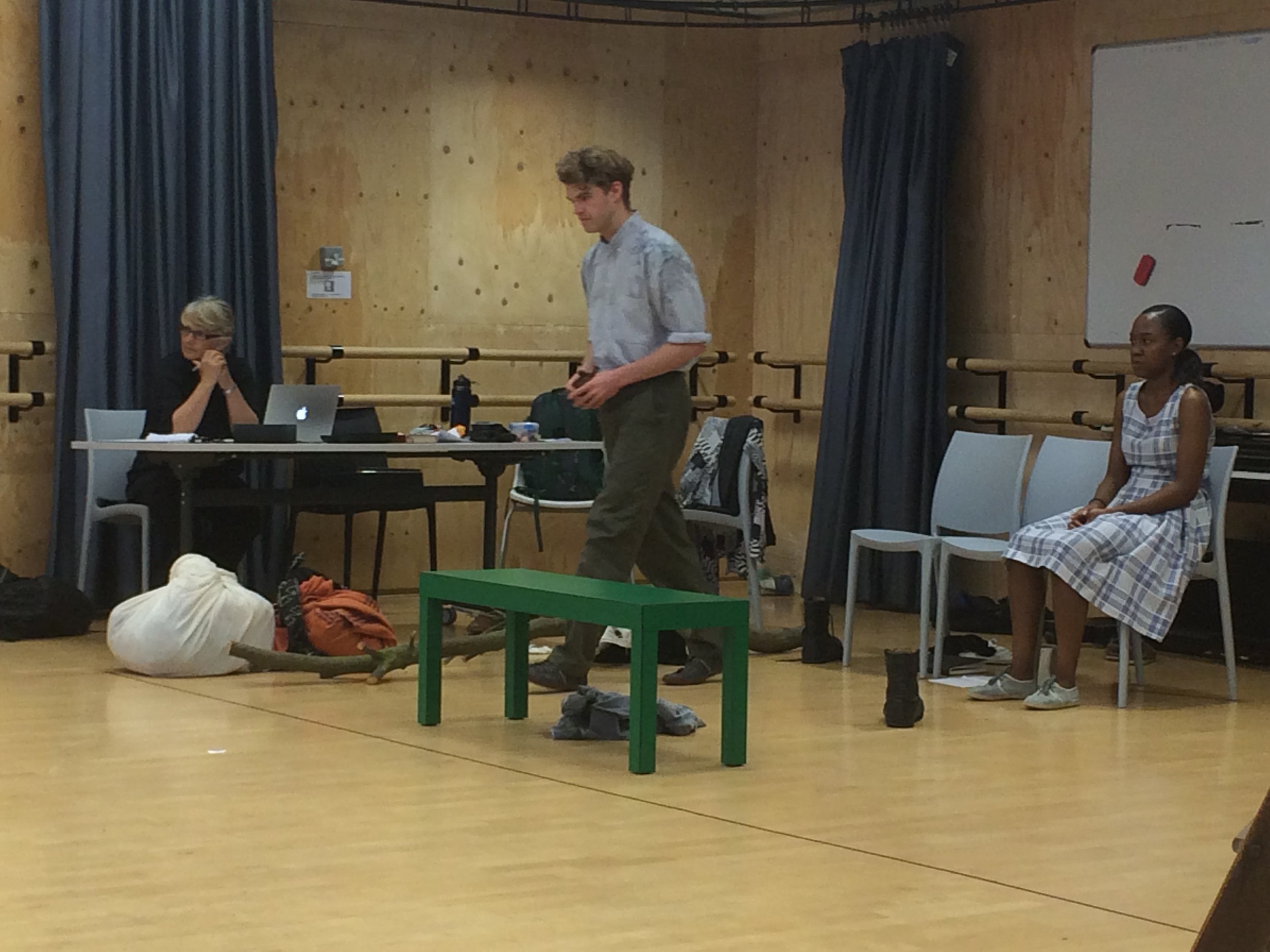
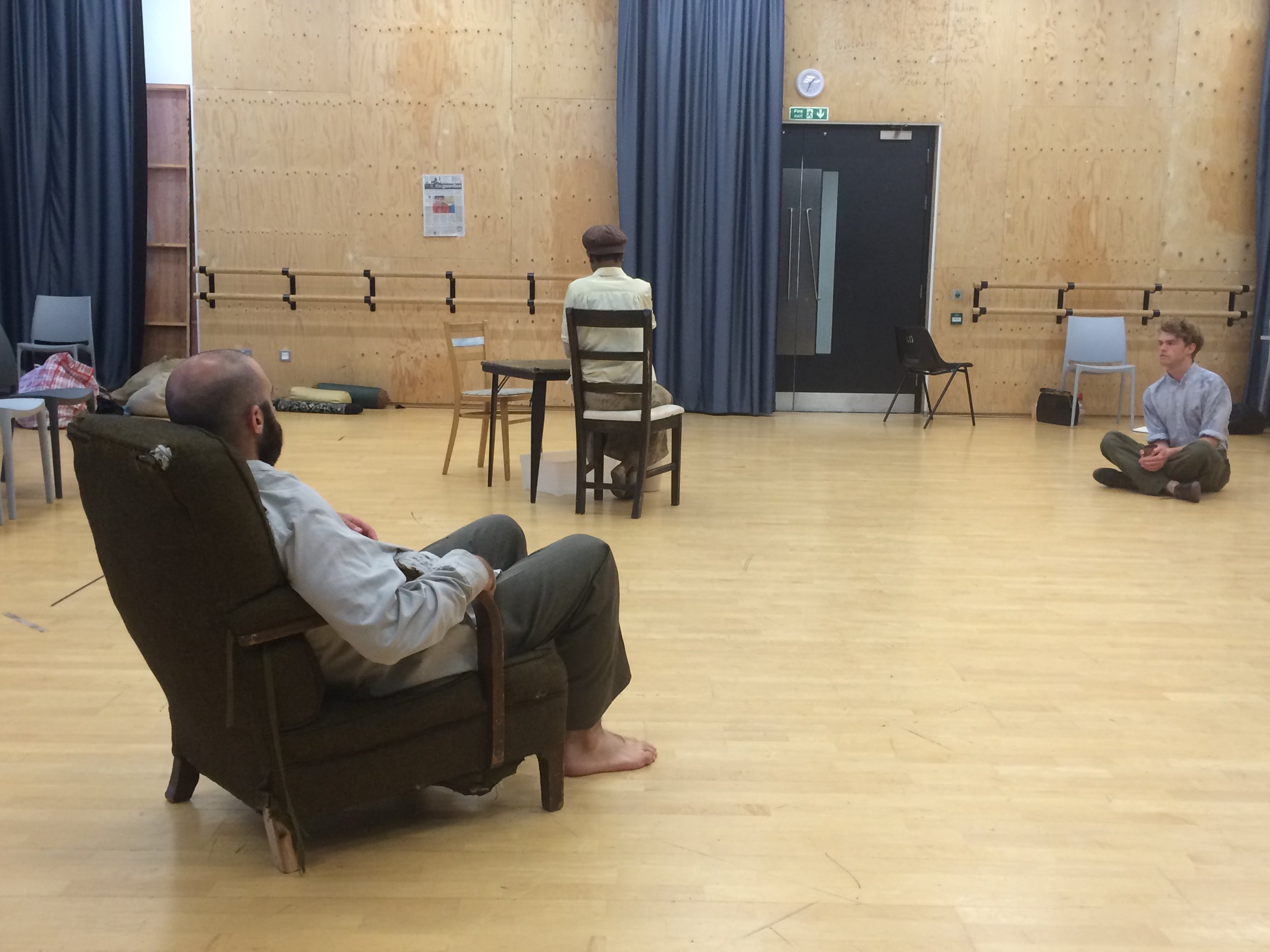
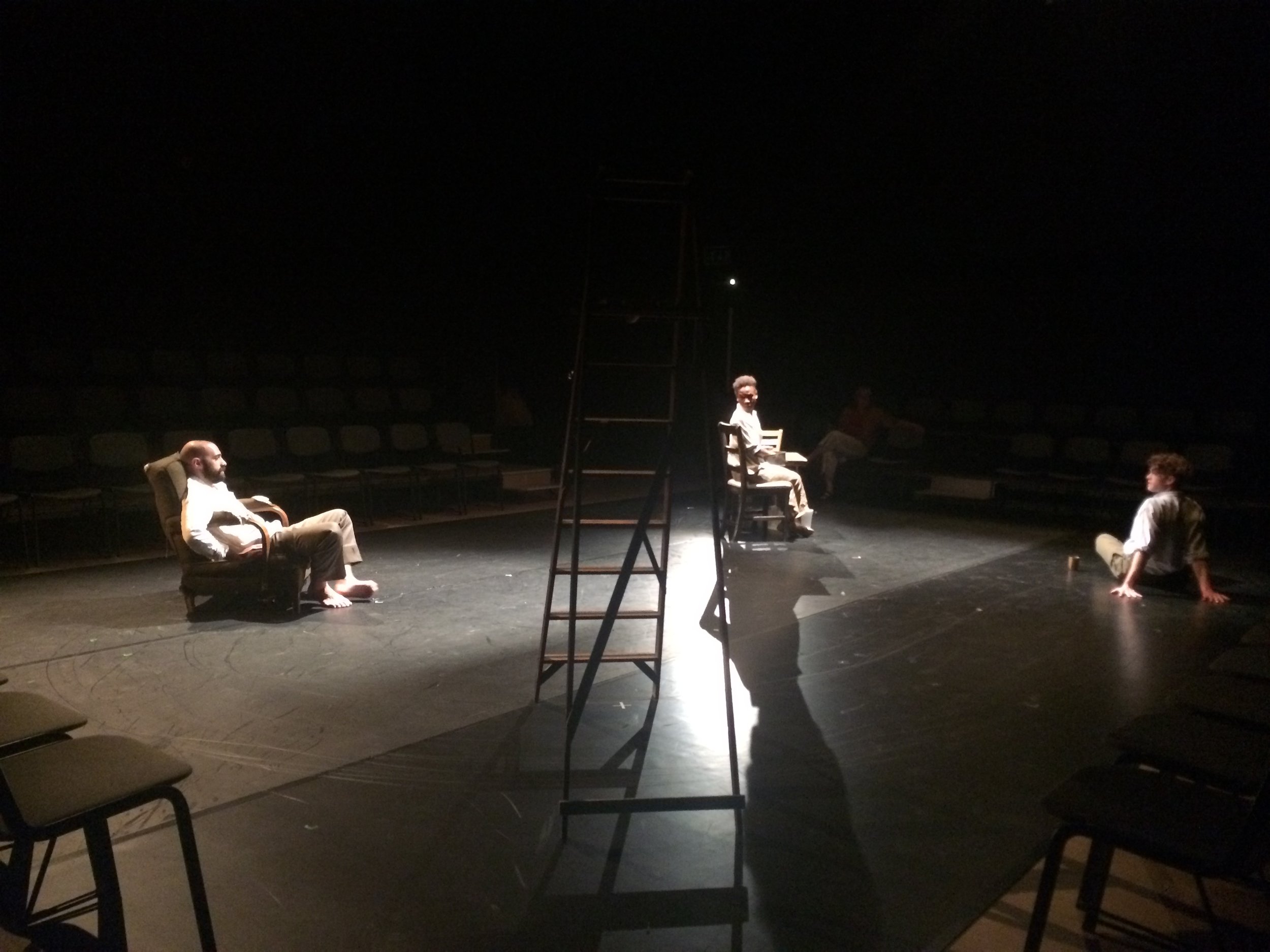
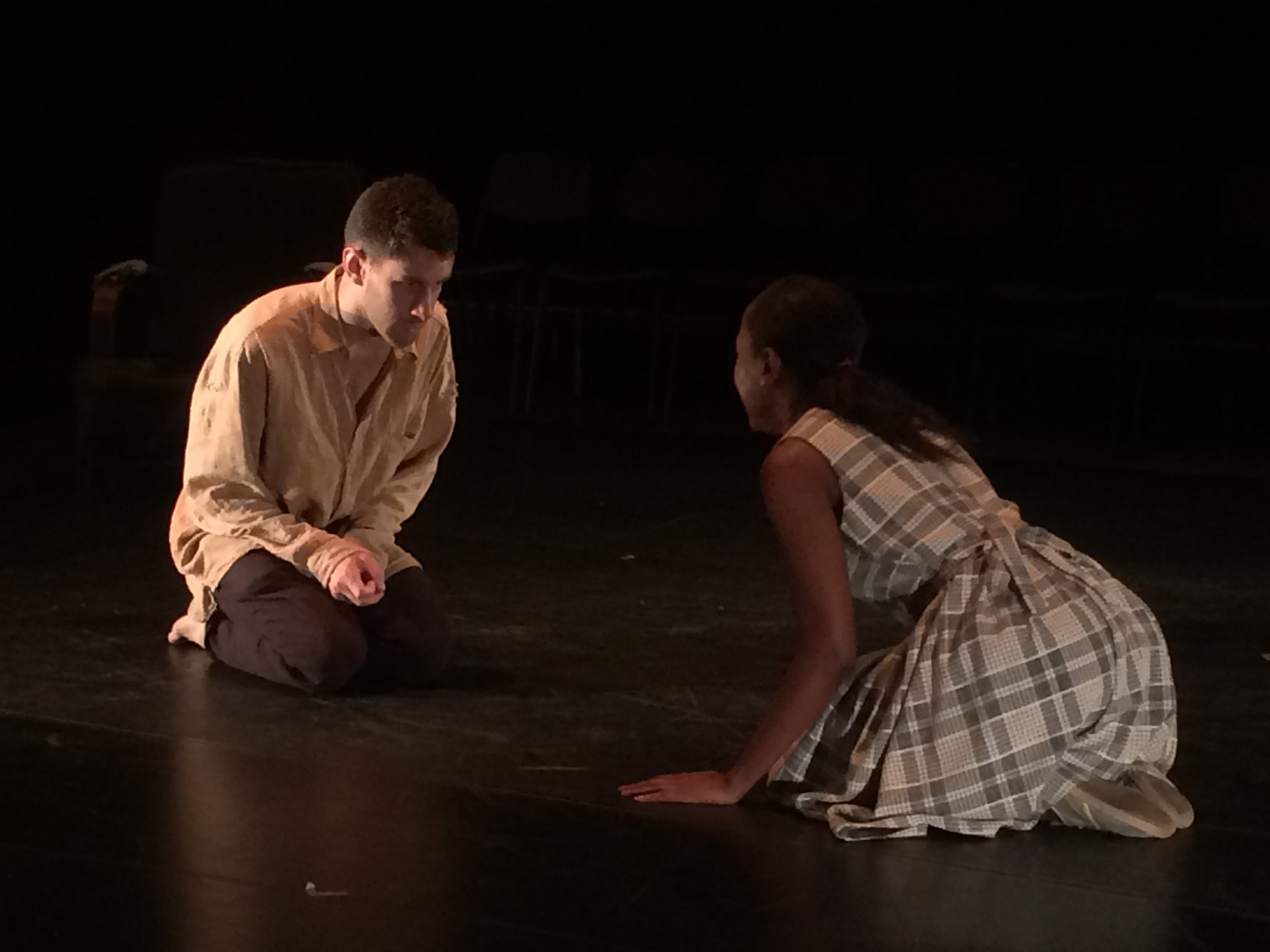
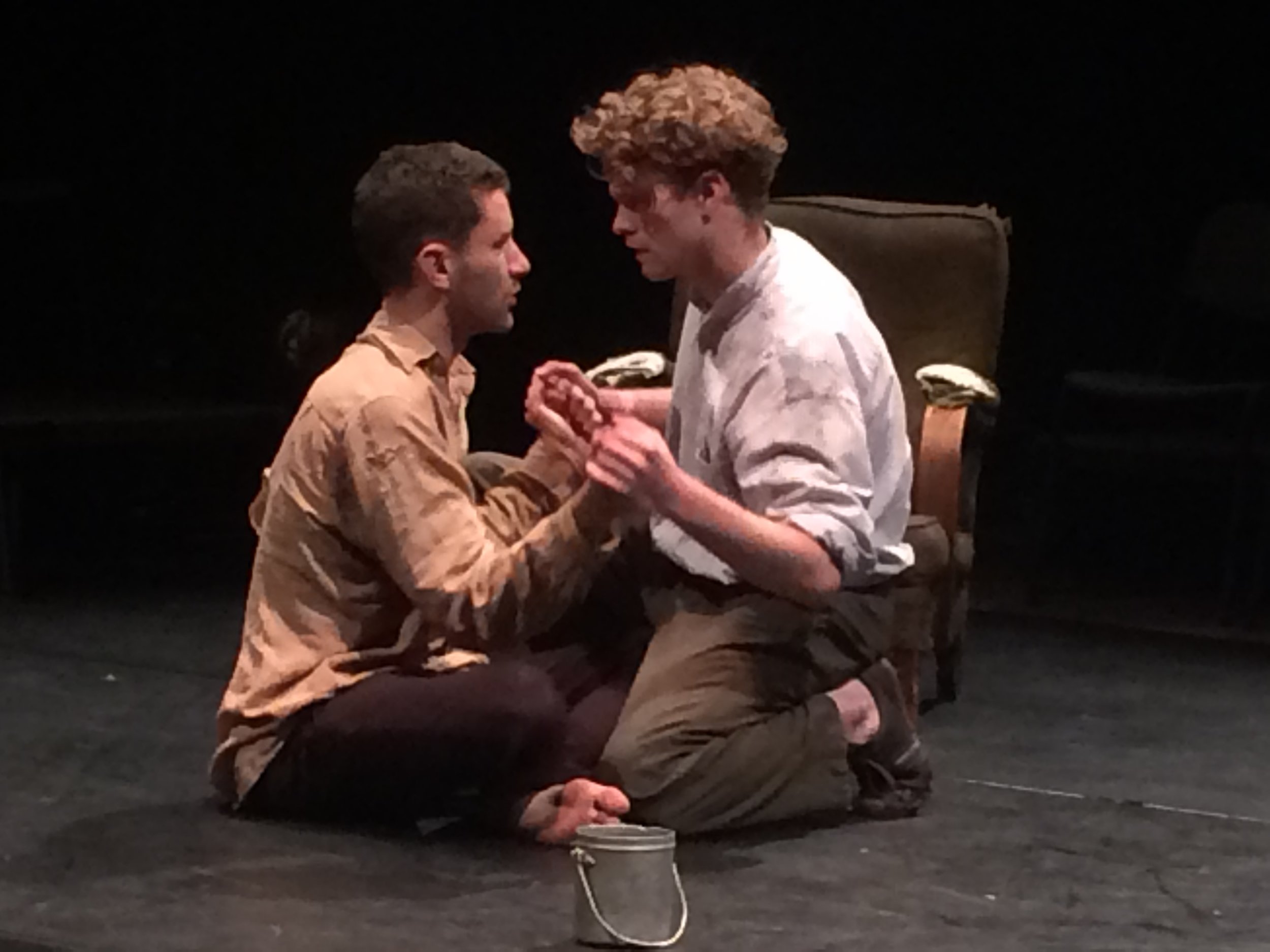
Student Reflection 2
Throughout this process, I really feel like I've found my confidence in my "self". Working with Kristine and her intracultural nature of the work helped me feel more relaxed and comfortable in a rehearsal room than I have ever felt before. From the first day of rehearsal, I felt a weight lift from my shoulders-- we were approaching the work in order to share our process and the story with the audience. We weren't working to meet an audience's expectations, we were sharing a story with them. Putting our work in this perspective helped free me from having to perform or try to reach a specific "result." This idea has shifted my thoughts on theatre performance in general and I'm looking forward to how it will affect me in my future projects.
Kristine’s approach allowed me to bring my whole self into the room. We were encouraged to not to distance ourselves from our roles by creating “a character”. We were continuously reminded that this work isn’t about a characterization of someone, but about ourselves, as actors—as people, telling a story. The work wasn't weighed down by vocabulary or a rules. We were encouraged to just be as present as possible and always stay actively engaged in the work we were doing and that the ensemble was doing. In order to stay present and play with each other, Kristine encouraged us to always be open to the other actors in the space. We would begin our rehearsals with games to create a playful and focused atmosphere in the room. The games were simple, but immediately changed the atmosphere in the room from one of drudgery to one of enthusiasm and eagerness. In order to maintain this presence throughout our rehearsals and runs, I would stay invested in our storytelling. It was integral to the piece to watch each other work and to be ready to dash onto the floor and bring your own energy to the play. Kristine introduced us to the word “complicite”, which I understood to mean a sense of play, openness, and support for yourself and your fellow actors. Complicite was only successful if everyone was as keyed into each other’s work as they were into their own parts. Complicite, to me, is very simple. In its simplest form, it’s a matter of being vividly awake in the room and wanting to make a connection between yourself and whoever you are playing with. A selfish actor cannot thrive in Kristine’s work because I am Yusuf was not about creating a showcase for somene’s acting abilities, but about telling a story about a group of people. Complicite was essential in helping us find and maintain a working rhythm. It was no longer about focusing on how you acted in your scene, but what your role in the story was-- how your role changed and shifted the story and what it meant to the audience. I saw my roles, as Woman from Haifa and Woman with Tree, as two very different aspects of the play. Woman from Haifa was the first time we encountered the actual suffering of refugees. This interaction was a pivotal shift in the tone of the play and it was vital for me to come onto the floor with an energy that was unlike anyone else on the stage. I was the foreign entity that allowed the audience to see the horrors that hadn’t yet filled the stage. As Woman with Tree, I knew I had to come onto the floor with the energy of a freight train in my core. In the play, the Woman with Tree comes on right after, as Kristine once said “Old Nada’s emotional scene” and in order to keep the rhythm of the play moving, there had to be a tone shift. I did find Woman with the Tree emotional, but in a defiant and believe it or not, hopeful way.
Throughout rehearsals, I found it refreshing to be to able to get on the floor and just bring what I felt to the role. Our rehearsals weren't overworked, but focused more on slowly letting ourselves open up through the stories we were telling. We would work through extended improvisations to find the ease in our roles and our stories. These extended improvisations were vital in finding the shape of our scenes. I knew that Kristine would say, "Yes, and now try this" and my work would open up in a different way in each rehearsal. I've never experienced a room that felt so open to who I was as an actor and what I brought through my own experiences as a person.
The encouragement of bringing myself into the work helped me connect with my voice more than I was able to in my previous training. Instead of feeling like I had to give a specific performance, or be a specific type of actor, I felt like I could just be myself on the stage and see where it took me. I felt that I could breathe more freely, physically and creatively, because we had worked to develop a sense of play and freedom in the room. I've struggled with feeling a connection between my voice and my acting throughout the year, but by really embracing my own accent and not trying to over-annunciate or over-work anything, I found a confidence and freedom in my voice that I had lacked before. This freedom manifested itself by allowing me to not think about how my voice sounded or resonated, but to focus on what my story was. This experience has taught me to stop trying to prove myself or achieve a specific result. I've learned to embrace who I am as an actor and what I bring into the room. I can now head into the professional world knowing that I know what I'm doing in a room and I can consistently deepen my work because I trust myself and the work I bring onto the floor.